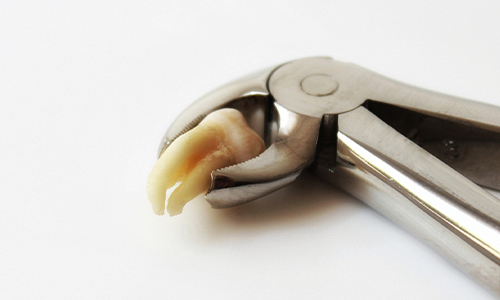What Kind of Problems Can a Wisdom Teeth Cause? TDS Chicago
Your mouth is designed to hold about 28 teeth comfortably, but most adults end up with 32 teeth overall. These extra teeth are called wisdom teeth. Not everyone will have a complete set of wisdom teeth but if they happen to have one or more, then they might have to remove them to avoid oral health complications. It’s always recommended to get impacted wisdom teeth removed on time before they begin to push other teeth out of alignment or cause overcrowding. In some cases, their immediate removal may be the need of the hour. Read the following information to know more about what kind of problems can a wisdom teeth cause and what happens during wisdom tooth removal surgery. The oral surgeons and emergency dentists at The Dental Specialists (TDS) can handle all your wisdom teeth problems with gentle and compassionate care.
What are Wisdom Teeth?
Wisdom teeth are the last set of molars found at the four mouth corners on the upper and lower jaws and usually appear between the ages of 17-and 21 or sometime later. They do not have any crucial function but if they properly erupt, they can support chewing. For some people, wisdom teeth may never entirely grow out while for others they may only breach partially or stay buried in the gum tissue. In cases wherein the wisdom teeth do not make a straight appearance or can’t break through the gums and get impacted, it can often result in oral health issues.
The dental experts at The Dental Specialists (TDS) can remove your problematic wisdom tooth without hurting you and help prevent future dental health concerns.
When Do I Need to Go for Wisdom Teeth Removal?
What health problems can wisdom teeth cause? Wisdom teeth are considered problematic for the reasons below, which also indicate the need for their removal:
Impaction- Wisdom teeth may grow either trapped beneath the gums or within the jawbone, a condition known as impaction/embedding. The impaction can cause pain and may even lead to infection and tooth damage. Some symptoms of impacted wisdom teeth include jaw swelling, gum bleeding and inflammation, headaches and toothaches, mouth mobility issues, tenderness and redness, persistent bad-smelling breath, tooth decay, and cyst formation. To alleviate these symptoms, wisdom teeth removal is the best option.
Lack of Jaw Space/small mouth- If you don’t have enough jaw space inside the mouth and your wisdom teeth still try to come in through the gums, it can cause damage to the roots of the second molars, tooth misalignment, and other problems. This can only be addressed by wisdom teeth removal.
Location- In cases where the wisdom teeth emerge straight and the mouth also has room for them to grow, it may be difficult to keep them clean since they’re so far back in the mouth. Cavities and periodontal disease may occur around the wisdom teeth, making wisdom teeth extraction the best solution.
The Angle of Eruption- Wisdom teeth ideally come out behind the second molars (not underneath) but for some people, they may emerge at an improper angle. In that case, pressure may build on the nearby molars and potentially trigger teeth to shift and cause damage. All these issues concerning wisdom teeth may not happen if they are removed.
You can get a wisdom teeth extraction, even as a preventive measure, especially if it’s tough to keep your other teeth disease-free.
What to Expect During the Removal of My Wisdom Tooth?
Before tooth extraction, the surgeon takes digital images of the inside of your mouth like dental X-rays and panoramic 3D imaging scans to spot the exact location of the wisdom tooth, to check how it’s growing, which teeth are being impacted, and count the wisdom teeth that need to be extracted. Our anesthesiologist would provide local or general anesthesia to ensure optimal comfort throughout the surgery.
Once the tooth and its surrounding tissues are numbed, the oral surgeon makes a small cut in the gums and the jawbone that may be covering your problematic wisdom tooth to ease its removal. Next, the wisdom tooth is loosened and pulled out with forceps, or broken into pieces to remove the whole tooth. After the tooth removal, the site is cleaned and disinfected. The incisions are closed with dissolvable stitches that the body naturally absorbs within a few days. Gauze can be placed over the site to minimize bleeding and encourage blood clotting.
A single wisdom tooth extraction procedure can get over within an hour. Post wisdom teeth removal, your dentist provides aftercare instructions including diet modifications. It is advised not to use a straw for drinking or smoking cigarettes as the suction action can delay healing by dislodging the blood clots or irritating/hurting any mouth part.
Is your wisdom tooth bugging you? Wisdom teeth removal is a common dental service performed by the best oral surgeon in Chicago at The Dental Specialist (TDS). For scheduling a consultation with the expert, call the dental clinic today or request an online appointment to know more in detail about what kind of problems can wisdom teeth cause and the benefits offered by wisdom tooth removal surgery.

